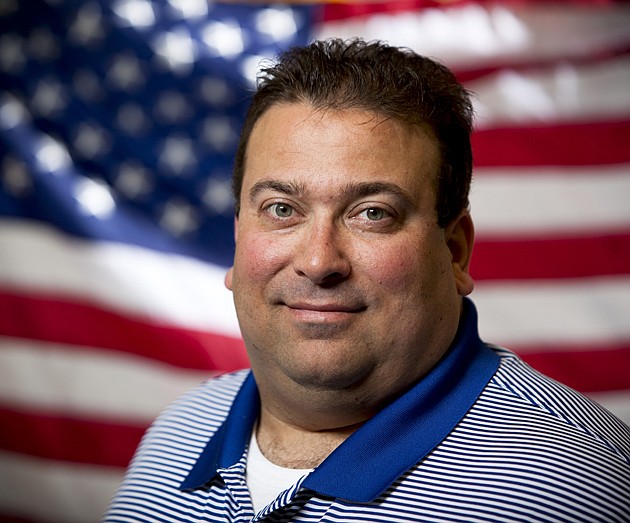- July 26, 2024
-
-
Loading

Loading

REVIEW SUMMARY
Business. Veteran Constructors, Lakewood Ranch
Industry. Construction
Key. Firm has grown rapidly with several military construction contracts.
Doctors in a hospital outside Pittsburgh delivered some startling news to Michelle Knispel in 2008.
They told her Andreas Knispel, her husband, was near death.
He had a three-inch blood clot on his lung, and was in intensive care. “They told my wife to check her insurance,” says Knispel. “They told her I wasn't going to make it.”
But Knispel made it out of the hospital alive.
While little after that can be considered a bona fide life-and-death struggle, Knispel has managed to find fast success in a field — construction — the recession otherwise smothered. Knispel's firm, Lakewood Ranch-based Veteran Constructors, was founded in 2009 and its three-year revenue track is certainly counter to the downturn. The 20-employee firm had $13 million in 2011 revenues, up 130% from $5.65 million in 2010. And the 2010 figure was up 5,500%, from $100,000 in 2009 revenues.
Veteran Constructors has doubtlessly been aided by Knispel's life story: He's a disabled U.S. Army veteran. The 2008 blood clot stems from the first clot he had while on an Army training exercise in California in 1994.
That makes Veteran Constructors a Service-Disabled Veteran-Owned Small Business — a significant designation in the complex world of federal contracts. The designation means Knispel's firm qualifies under an executive order that requires at least 3% of all federal contracting dollars to go to businesses owned by service-disabled veterans. The order, signed initially by President George W. Bush, covers any industry the federal government contracts with, not just construction.
Knispel's firm, moreover, is a niche within a niche in construction, a formula other builders have used to survive the downturn. In the case of Veteran Constructors, the firm only works on military installation projects and VA hospitals.
The firm's first big victory came in summer 2010. That's when the U.S. Coast Guard awarded it a $17 million project, a three-story, 164-room barracks and complex in Elizabeth City, N.C. Construction on the project, a partnership with the U.S. Department of Homeland Security, began in January 2011. It could be completed by September.
The project includes an 11,000-square-foot dining facility. “This is a showcase project for the Coast Guard,” says Rick Jimenez, a senior project manager with Veteran Constructors. “They don't build too many like this.”
'Heavy scrutiny'
The model Knispel built in three years with Veteran Constructors is also somewhat unique.
That's because the company essentially straddles two worlds. In one world, it's a general contractor, ready to take the lead on medium-size projects, like the Coast Guard barracks. In the other world, however, the firm is a subcontractor that seeks work on large-scale projects bigger companies oversee.
The firm must prove it belongs in both worlds to succeed in either, says Knispel. “You want to make sure you have a very strong balance in what you go after,” Knispel says. “A subcontractor is more profitable, with less risk.”
Yet the company needs to take on bigger projects in a lead role to show others, including government officials, that it can do the work at a high level. That's riskier, and costlier.
For one, Veteran Constructors has $40 million in bonding capacity, a high insurance number for a $13 million firm. Plus, on a smaller scale, the actual project bids for a lead contractor role are a significant expense. It cost $10,000, for instance, just to bid on the Coast Guard barracks project.
If a $200 million competitor doesn't get that job, it's a rounding error. But if Knispel bids and fails too many times, it can squeeze margins.
The two-worlds balance has an additional unique element for Veteran Constructors: The firm can't surpass $100 million in sales over a three-year period.
If it goes over $100 million, it's no longer eligible for work under the disabled veteran-owned small business executive order. So while Knispel craves growth, and the validation that comes with it, he will surely cap revenues before it hits that figure.
The Coast Guard project is an example of the tightrope Knispel walks when he maps out Veteran Constructors' strategy. The company could have pursued a subcontractor role in North Carolina, which would have been profitable, and less complicated. “A lot of big boys fought to get that work,” Knispel says. “We are under heavy scrutiny. A lot of eyes are on us.”
But a primary role has its advantages. Money, namely. The barracks contract elevated the company to a revenue level Knispel didn't foresee when he founded the business. Nonetheless, Knispel says being taken seriously remains the company's biggest challenge.
Lessons learned
Knispel's entry into construction also differs from many other local executives. He didn't get into it from an early age, and he didn't graduate from the University of Florida's prominent M.E. Rinker Sr. School of Building Construction.
Instead, Knispel got into the federal contracts side of the business first. He worked in both worlds there, too. He founded his own veteran disabled consulting and contracting business in his native Pittsburgh, and he also worked in procurement and logistics for several federal government agencies.
The experience in how to succeed under disabled veteran-owned business guidelines was key in 2009, when Knispel launched Veteran Constructors. Knispel believed a company with that knowledge base would have few peers. “We are in an elite class,” he says, “not only in Florida, but on the east coast as well.”
In addition to the Coast Guard barracks, recent and current Veteran Constructors projects include a child-care center at the Norfolk Naval Station and a renovation at the Fort Pierce Federal Courthouse. The firm has also done work for an expansion project at the James A. Haley Veterans Hospital in Tampa.
“I always envisioned that the company would be successful,” says Knispel. “But it's pretty remarkable how fast it has taken off.”